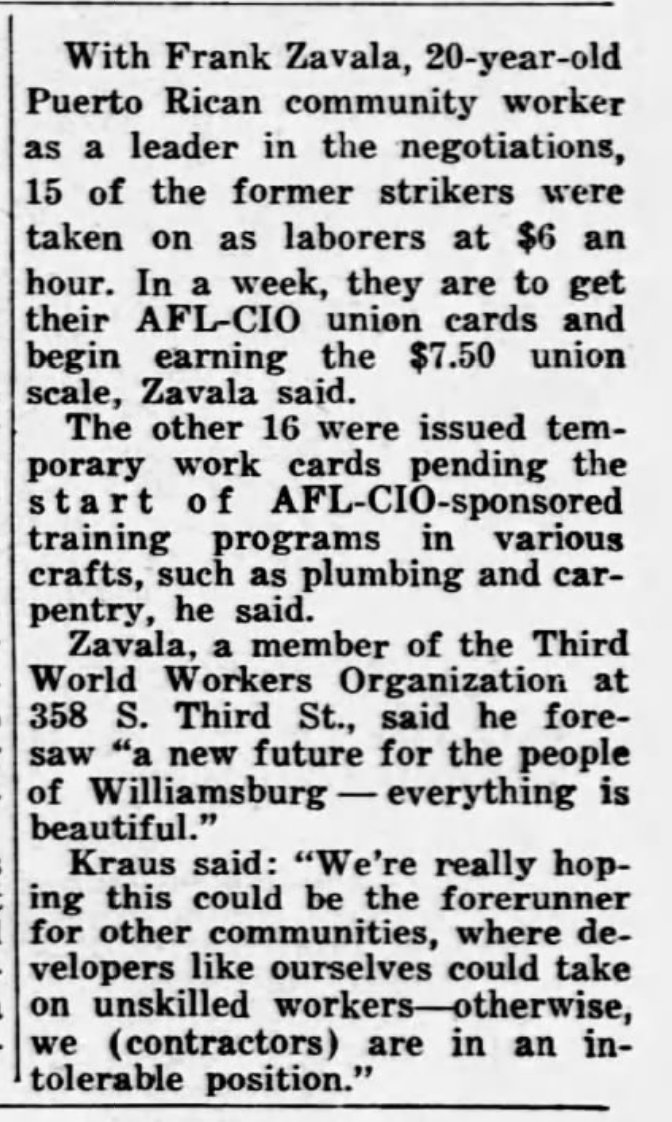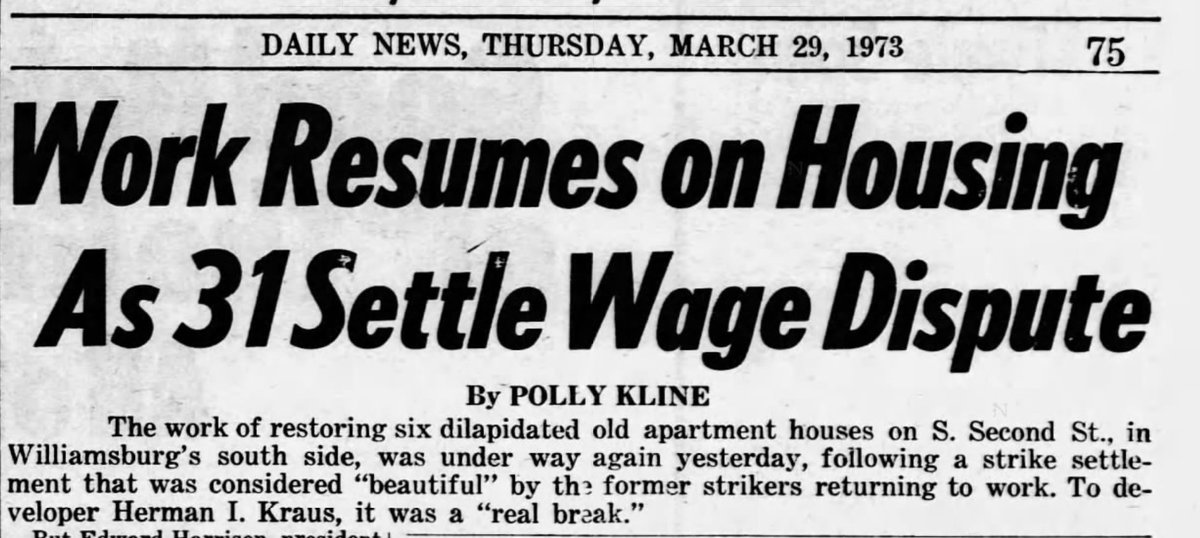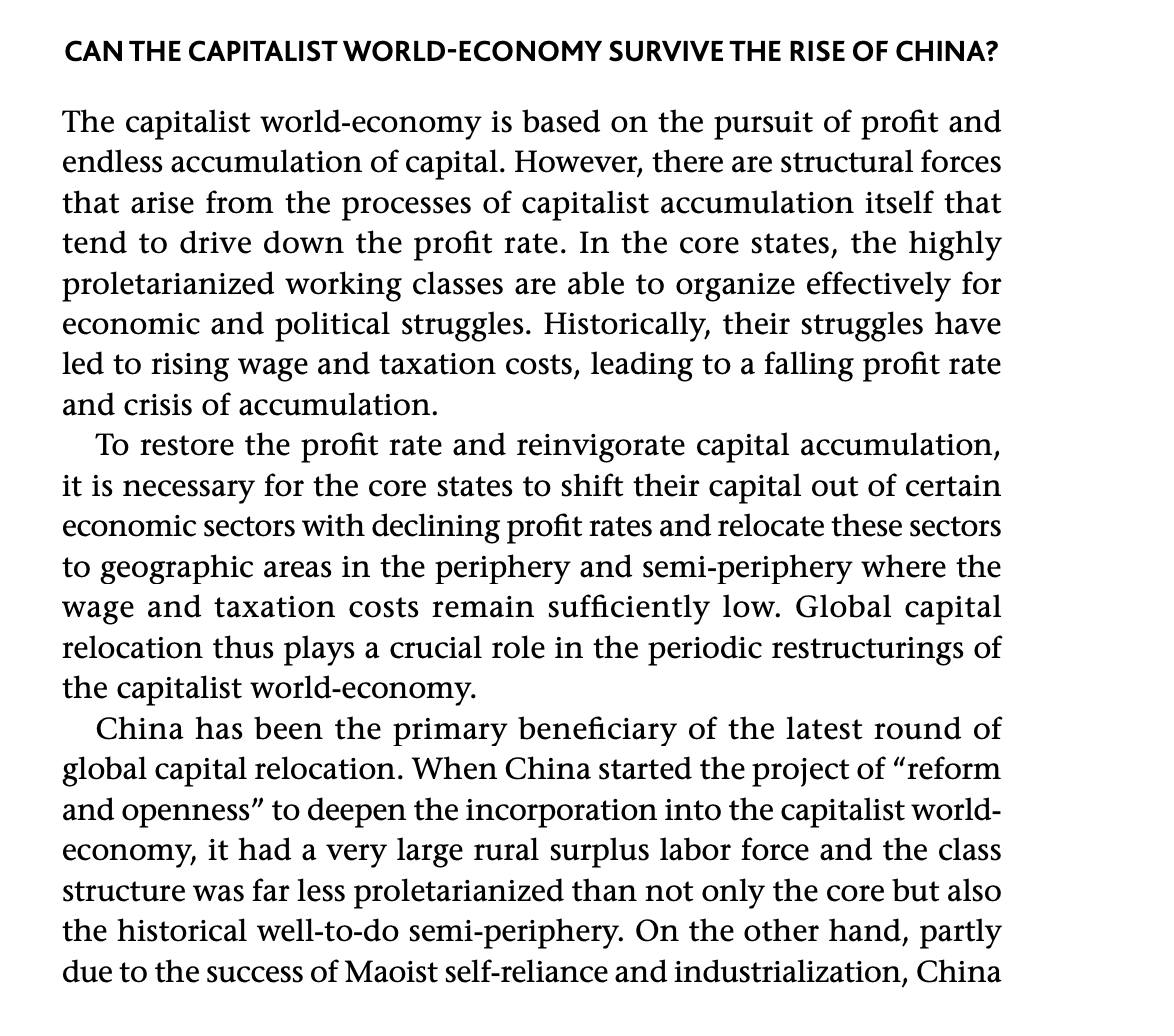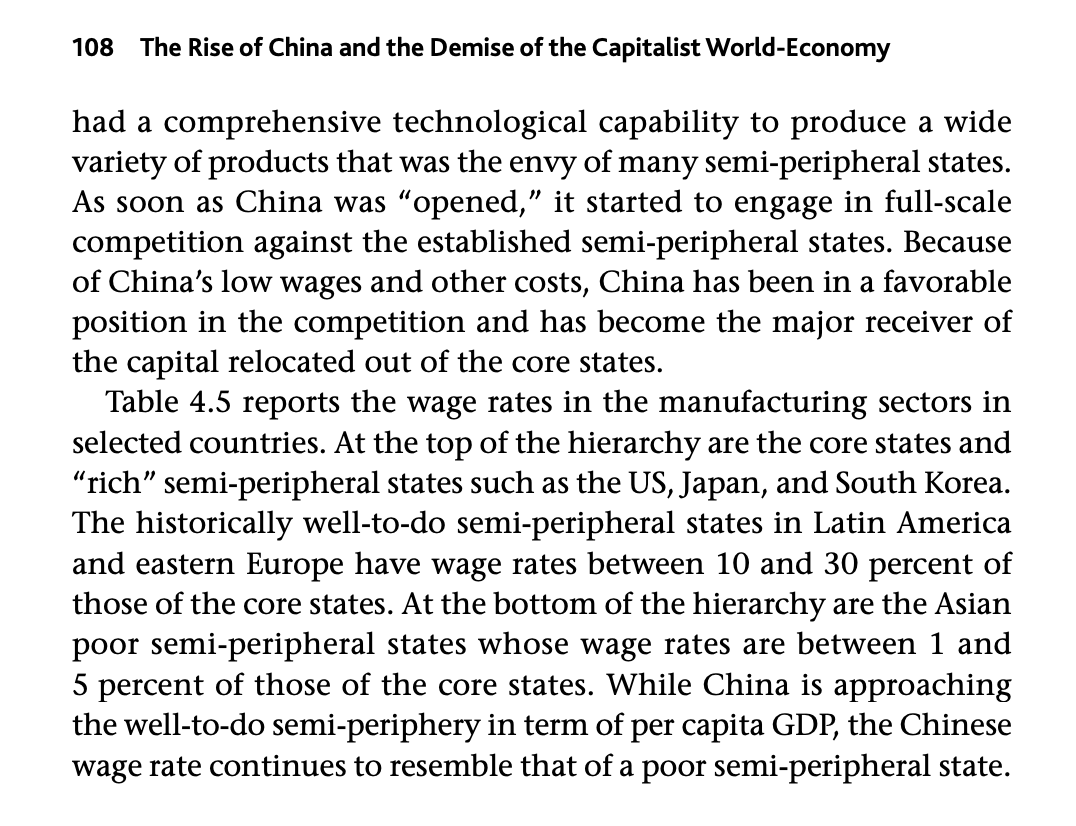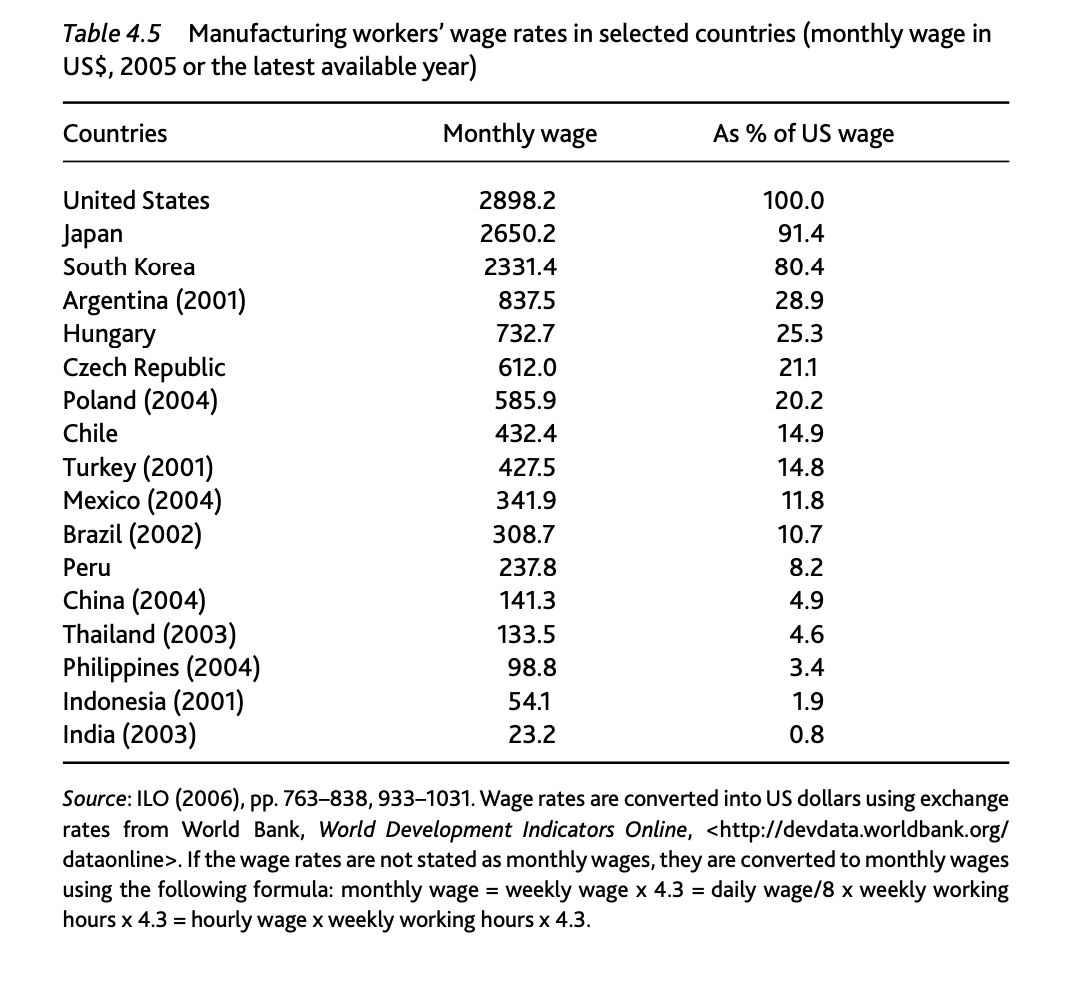People need to understand Deng& #39;s role in the collapse of the Black proletariat in the US. China& #39;s industrialization was accomplished thru America& #39;s deindustrialization. The rise of Shenzhen depended on the collapse of Detroit, Cleveland, St Louis, Milwaukee, Pittsburgh.
Those industrial jobs in China came from capitalists shifting their production from the US to China. There was no net gain in production globally. There was a net gain in terms of value extraction as the Chinese worker was getting 15 cents per hour instead of 15 dollars.
You can be like "settlers can starve idc" but white proles in the US weathered that better thru becoming suburban settlers and then re-settling urban areas that the Black workers had been driven out of thru engineered social breakdown and police occupation.
Two classes were liquidated by the Reform: Chinese peasants, thru ending collectivization of agriculture, and Black American industrial workers, through sending all of their jobs (the ones they had spent 50 years fighting for) to China to be taken by displaced peasants.
If your idea of "socialism" is "government programs to replicate Western economic development while getting Western capitalists to pay for it" then sure you win.
But there& #39;s no internationalism there. My country wins, and the others starve, idc.
Just saying. Next time you start talking about why there& #39;s no revolutionary potential in the US think about why the revolutionary classes got liquidated.
This is mostly inspired by Minqi Li who was the first economist I read that connected the Reform period in China to what was going on in the rest of the world http://digamo.free.fr/minqili08.pdf ">https://digamo.free.fr/minqili08...
People can have "The rise of China" as one narrative and "shipped all our jobs to China" as another, like they happened on two different planets and had nothing to do with each other, when in fact they were dependent on each other and may have been part of the same collaboration.
This was also inspired by some random details on a different thing I was researching that are like a window into a completely different timeline. Who would ever put "Williamsburg," now synonymous with privileged white urban settlers, in the same place as "Third World Workers Org"
Do Chinese carpenters even get $7.50 / hr today?
The thing to remember is that the capitalists in the US has been wanting to undercut their rising + militant working class for decades by offshoring production but in 1970 there was no place to send the jobs. The workers were holding those jobs hostage and demanding high wages.
Labor was strong in Europe so there was no sending jobs there. Eastern Europe and USSR were Soviet and off limits. Africa was too underdeveloped to absorb 10 million industrial jobs, plus they were militant and Soviet-aligned. Latin America was too small to take that many jobs.
This is what Li explains in the book I linked above. Capitalists in 1970 were at a loss - there was a labor shortage in the capitalist world, and because the workers had fought for higher wages there was no place in the capitalist world with enough cheap labor
and developed infrastructure to move whole industries. India was too underdeveloped. Vietnam was killing American soldiers. China changed the balance by joining the capitalist world. They ended the labor shortage and took the bargaining power away from workers globally.
Remember there were 2 sides to every deal. They could have agreed to take American jobs on the terms that Chinese workers got paid the same as American ones. The capitalists could afford it because that was what they were already paying.
The point here wasn& #39;t just to get cheaper labor overseas. The point was to liquidate a class that was militant and had revolutionary potential. Imagine the embargo on China being ended on terms set by American workers instead of American capitalists.
Anyway I& #39;m summarizing a book in a tweet thread - if you want more detail read the book. I& #39;ll post it again here in case you missed it up-thread.
http://digamo.free.fr/minqili08.pdf ">https://digamo.free.fr/minqili08...
http://digamo.free.fr/minqili08.pdf ">https://digamo.free.fr/minqili08...
Once you& #39;ve read Li& #39;s preface on the Tiananmen crackdown, read Federici on interpreting how the capitalist financial media indicated their approval of that crackdown, supporting the thesis that it was a worker uprising http://www.midnightnotes.org/pdfnewenc7.pdf ">https://www.midnightnotes.org/pdfnewenc...
and contradicting the popular interpretation that this was a liberal free-market uprising, and also the counternarrative that it was strictly a CIA op, and not a socialist worker movement coopted by a small, violent liberal CIA-backed student faction.
(Each side using the other as their fall guy while crushing the workers)
Also while I& #39;m here, the 30-years-after mea culpa from Columbia Journalism Review about how Western media pushed the "liberal student uprising" story and erased that it was part of a nationwide worker uprising in protest of privatization https://www.cjr.org/watchdog/tank-man-tiananmen-vox-pop-got-wrong.php">https://www.cjr.org/watchdog/...
It& #39;s poignant how 1972 - 1978 echoes what went down in China from 1925 - 1927. The people were on the move, the rightists were out of touch and those who understood the disposition and militancy of the revolutionary classes couldn& #39;t convince the leadership to take the initiative.
And in both cases the outcome was a tragic betrayal that set back the revolution by decades.

 Read on Twitter
Read on Twitter